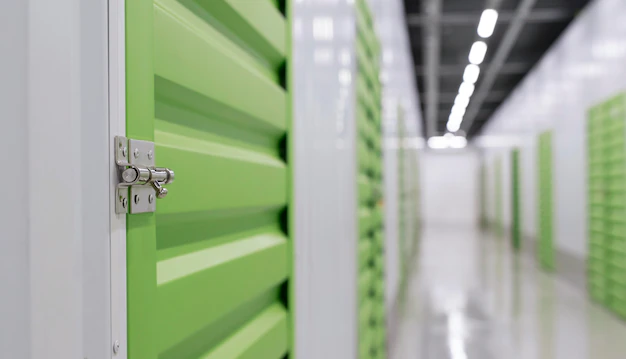When considering renting a self storage unit, it’s crucial to look beyond the advertised rental rate.
Hidden costs often lurk beneath the surface, impacting the overall affordability and value of the storage solution. These costs can range from administrative fees, which are sometimes applied at the start of the rental agreement, to late payment penalties, which can accumulate if payments are delayed.
Additionally, certain storage facilities might require a deposit, adding to the initial outlay. It’s important for renters to inquire about all potential expenses to avoid surprises. Understanding the complete financial commitment involved in renting a self storage unit requires thorough research and careful questioning.
This approach ensures that individuals can make an informed decision, accurately weighing the cost against their storage needs and budget. By being aware of these hidden costs, renters can better manage their finances and choose a storage solution that aligns with their economic circumstances.
Evaluating the Benefits of Specialized Storage Options
When delving into the diverse world of storage solutions, one can discover specialized options like SecurCare self business storage, tailored to meet specific needs. This type of storage offers unique benefits, especially for those seeking space for business-related items.
Unlike standard units, these facilities often provide enhanced security features, ensuring that valuable business assets are well-protected. This is particularly vital for storing sensitive documents, high-value inventory, or equipment. Furthermore, the convenience factor plays a significant role.
Many business storage solutions offer extended access hours or 24/7 availability, allowing business owners to retrieve or store items as per their schedule, which is crucial for dynamic business operations. These facilities may also include additional amenities like climate control, which is essential for preserving the integrity of certain products or documents.
Opting for a business-focused storage unit, therefore, presents a strategic advantage, allowing businesses to operate more efficiently while ensuring the safety and accessibility of their assets. It’s a decision that intertwines practicality with peace of mind, catering to the nuanced requirements of business storage.
Exploring the Impact on the Local Economy
The local economic impact of self-storage facilities is a multifaceted subject, often overlooked in broader financial discussions. These facilities contribute significantly to the local economy, not just through direct employment but also via various other channels.
To truly grasp this impact, consider the following aspects:
- Job creation: Self-storage facilities directly generate employment opportunities for the community.
- Support for local businesses: They provide essential storage solutions for local businesses, aiding in their operational efficiency.
- Increased property values: Well-maintained facilities can enhance the value of surrounding properties.
- Revenue through property taxes: These facilities contribute to local revenue through property taxes.
- Indirect economic stimulation: They indirectly support various service sectors like security, maintenance, and construction.
Each of these points illustrates the ripple effect that self-storage facilities have on local economies. Beyond their apparent functionality, they play a pivotal role in stimulating economic activity and supporting community growth.
For an in-depth understanding of this impact, readers can explore additional resources that shed light on the nuanced ways through which these facilities contribute to economic vibrancy. This broader perspective is crucial for appreciating the full scope of their economic significance.
Financial Risks and Mitigation Strategies
Navigating the financial risks associated with using self storage units is an important aspect for consumers. While these facilities offer convenience and space management solutions, there are financial implications that need careful consideration. The primary risk involves the cost of renting the storage space, which can vary depending on the location and size of the unit. Users must assess their budget constraints and the duration for which they require the storage.
Another risk is the potential for additional fees, such as late payment penalties or charges for extra services like climate control. To mitigate these risks, individuals should thoroughly research different storage providers, comparing their prices and the terms of service. It’s also advisable to closely read the rental agreement to understand the fee structure and avoid any hidden charges.
Opting for insurance cover for the stored items can protect against potential losses due to unforeseen events. Overall, a balanced approach that weighs the benefits against the financial implications ensures a cost-effective and secure storage experience.
Maximizing Space and Minimizing Costs
When considering self storage for business needs, it’s crucial to maximize space efficiency while minimizing costs. This approach ensures financial prudence and optimizes the benefits of using a storage unit.
To achieve this balance, several strategies can be employed:
- Inventory Management: Regularly assess what is stored to ensure only necessary items occupy the space. This practice prevents clutter and reduces the need for larger, more expensive units.
- Strategic Organization: Utilize shelving and labeling systems to organize items effectively. This method not only saves time when accessing stored items but also maximizes the usable space within the unit.
- Cost Comparison: Regularly compare the costs of different storage options. Websites like Consumer Reports offer insights on pricing and options, helping to find the best deal.
By implementing these methods, businesses can make the most out of their self storage units. It’s not just about storing items; it’s about creating an extension of the business space that is both cost-effective and efficiently managed. This mindset transforms a mere storage space into a strategic asset for the business.
Evaluating Long-Term Financial Benefits
Incorporating a self storage unit into your business strategy requires a long-term perspective, especially when considering the financial implications. It’s not just about the immediate expense; it’s about understanding how this decision fits into the broader picture of your business’s financial planning. This approach is essential for ensuring that the investment aligns with your company’s financial goals and growth trajectory.
Read Also:





Leave A Comment